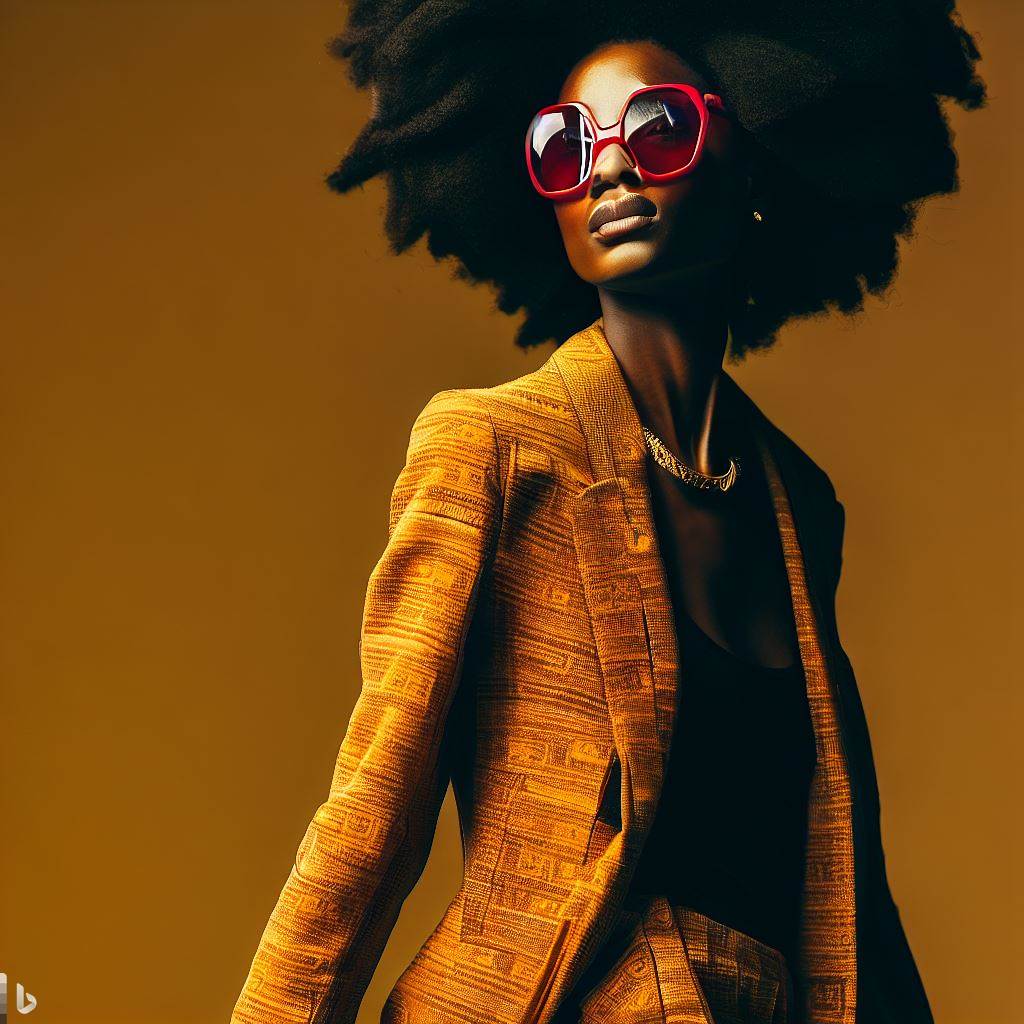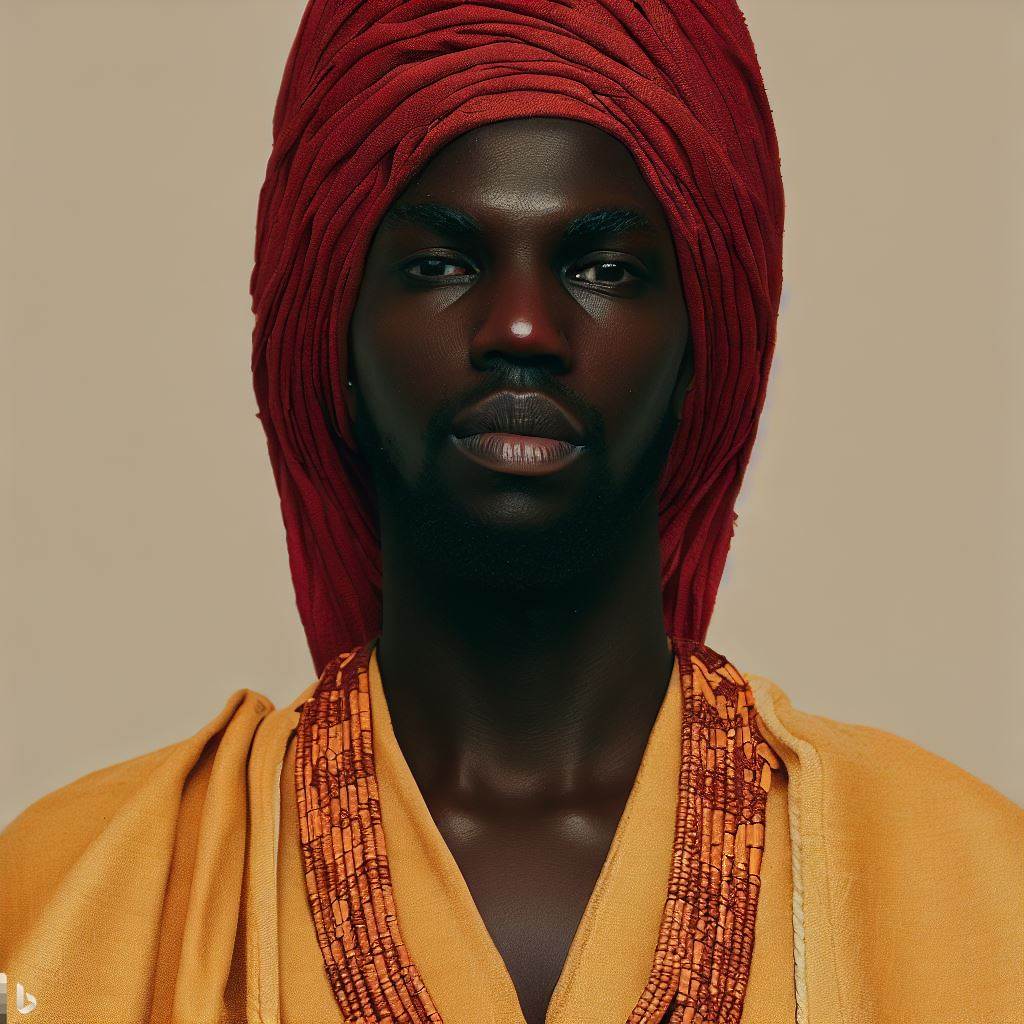Introduction
The rise of fashion design in Nigeria’s creative industry has brought immense opportunities for both established designers and emerging talent.
Nigerian fashion designers are now being featured on global runways, attracting international attention and boosting the country’s creative economy.
With the support of local fashion shows and events, Nigerian designers have a platform to showcase their talent to a wider audience.
Traditional Nigerian attire such as the ankara and the agbada have gained global recognition, thanks to the creativity and craftsmanship of Nigerian designers.
Fashion has become a means of self-expression and a way to celebrate the nation’s unique identity.
Furthermore, the fashion industry has become a major employer, providing job opportunities for tailors, seamstresses, models, and stylists.
This has contributed to the socio-economic development of Nigeria, creating a ripple effect where more people are inspired to pursue careers in fashion.
In fact, the rise of fashion design in Nigeria’s creative industry has become a catalyst for growth and development.
The country’s unique fashion aesthetic, coupled with the creativity and entrepreneurial spirit of its designers, has positioned Nigeria as a force to be reckoned with in the global fashion scene.
The future looks bright for Nigeria’s fashion industry, as it continues to evolve and make its mark on the world stage.
Historical Background of Nigerian Fashion Design
Early influences and traditional clothing
Nigerian fashion design has deep roots in the country’s rich history and diverse culture.
The traditional clothing of different ethnic groups in Nigeria has greatly influenced the country’s fashion landscape.
Garments such as the agbada, buba, and gele have been worn for centuries and continue to be an integral part of Nigerian fashion.
Emergence of global fashion brands in Nigeria
In recent years, Nigeria has seen a surge in the presence of global fashion brands within the country.
International fashion houses such as Chanel, Louis Vuitton, and Gucci have opened stores in major cities like Lagos and Abuja.
This globalization of fashion has provided Nigerian consumers with access to a wide range of high-end luxury brands.
Development of local fashion designers and their impact
Alongside the rise of global fashion brands, there has also been a significant development in local Nigerian fashion designers.
- These designers have been instrumental in showcasing Nigerian fashion on both local and international platforms.
- They have infused traditional Nigerian fabrics and patterns into modern designs, creating a unique and innovative aesthetic.
- Local designers such as Deola Sagoe, Lisa Folawiyo, and Mai Atafo have gained international recognition for their exceptional talent.
- Their creations have been showcased at prestigious fashion events like Lagos Fashion Week and African Fashion Week.
- These designers have not only contributed to the growth of the Nigerian fashion industry but have also empowered local artisans and tailors.
- They have provided employment opportunities and have encouraged the revival of traditional craftsmanship.
In review, the success of these local designers has inspired a new generation of young Nigerians to pursue careers in fashion.
In short, the historical background of Nigerian fashion design is a testament to the country’s cultural heritage and its growing influence in the global fashion industry.
The combination of traditional influences, the presence of global fashion brands, and the rise of local designers has propelled Nigeria’s creative industry to new heights.
Nigerian fashion design is not just about clothing, but it represents a celebration of diversity, creativity, and innovation.
Read: Fashion Design in Nigeria: Licensing & Legal Essentials
Factors Contributing to the Rise of Fashion Design in Nigeria
Growing economy and middle class
Firstly, the growing economy and expanding middle class have played a significant role.
Nigeria’s burgeoning economy has resulted in an increase in disposable income, allowing more people to invest in fashion.
With the middle class having more purchasing power, fashion designers can cater to the rising demand for stylish and high-quality clothing.
Increased access to technology and social media
Secondly, the increased access to technology and social media has revolutionized the industry.
Technological advancements have made it easier for designers to create and promote their designs.
Social media platforms, such as Instagram and Facebook, have become powerful tools for showcasing fashion.
Designers can now reach a wider audience, both nationally and internationally, boosting their visibility and increasing sales.
Government support and educational initiatives
Government support and educational initiatives have also contributed to the rise of fashion design in Nigeria.
The Nigerian government recognizes the potential of the rise of fashion design in Nigeria as a catalyst for economic growth.
Financial support and tax incentives encourage aspiring designers to pursue their dreams.
Additionally, educational initiatives provide training and mentorship, nurturing a skilled workforce and ensuring the industry’s sustainability.
Cultural appreciation and identity
Cultural appreciation and identity have played a vital role in the success of Nigerian fashion.
- Nigerians take pride in their cultural heritage and traditional clothing.
- Fashion designers embrace these cultural elements and infuse them into contemporary designs, creating a unique and authentic style.
- Consumers appreciate the richness and individuality of Nigerian fashion, driving its popularity both within the country and internationally.
In essence, Nigeria’s fashion design growth is driven by a booming economy, tech and social media access, government support, education, and cultural identity.
These factors have created a favorable environment for fashion designers to thrive, contributing to the growth and recognition of Nigerian fashion on a global scale.
Read: The Intersection of Art & Fashion Design in Nigeria
Notable Nigerian Fashion Designers
Popular designers and their contributions
- Deola Sagoe: Known for her innovative designs and use of traditional Nigerian fabrics.
- Lisa Folawiyo: Recognized for her unique blend of African prints and contemporary styles.
- Mai Atafo: Renowned for his impeccable tailoring and luxurious bridal creations.
- Tiffany Amber: Celebrated for her elegant and sophisticated designs that showcase Nigerian aesthetics.
- Orange Culture: A gender-neutral brand pushing boundaries with unconventional silhouettes and prints.
Fashion events and awards highlighting Nigerian talent
Nigeria has witnessed a surge in fashion events that showcase the country’s creative potential.
Lagos Fashion Week, organized annually, is one of the most anticipated rise of fashion design in Nigeria events in the country.
It attracts renowned designers, buyers, and fashion enthusiasts from across the globe.
The event serves as a platform for Nigerian designers to exhibit their designs and gain international recognition.
Another notable event is the Arise Fashion Week, which showcases both established and emerging Nigerian talents, providing a springboard for their careers.
Furthermore, the Nigerian Fashion Awards celebrates industry professionals, elevating Nigeria’s fashion scene nationally.
Examples of successful Nigerian fashion brands
- Maki Oh: Founded by Amaka Osakwe, Maki Oh creates innovative designs inspired by Nigerian culture and heritage.
The brand has gained global recognition and has been worn by celebrities like Beyoncé and Lupita Nyong’o. - Lisa Folawiyo: In addition to being a notable designer, Lisa Folawiyo has successfully transformed her eponymous fashion brand into a globally recognized label.
Her vibrant and patterned designs have attracted a loyal following both in Nigeria and abroad. - Tiffany Amber: The Tiffany Amber brand, founded by Folake Coker, has become synonymous with luxury and elegance.
It has achieved international acclaim and has been showcased at prestigious fashion events around the world. - Orange Culture: Established by Adebayo Oke-Lawal, Orange Culture is a Nigerian brand that challenges traditional gender norms through its unique and unconventional designs.
Its bold and artistic approach has gained recognition within and beyond Nigeria’s borders. - Andrea Iyamah: Known for its vibrant and eclectic swimwear and ready-to-wear collections, Andrea Iyamah has become a favorite amongst fashion enthusiasts globally.
The brand’s use of bold colors and patterns sets it apart from the crowd.
These examples demonstrate the rising influence and success of Nigerian fashion brands, both within the country and on the international stage.
Nigerian designers continue to push boundaries, redefine fashion norms, and showcase the rich cultural heritage of Nigeria through their unique creations.

Impact of Fashion Design on Nigeria’s Creative Industry
Job creation and economic growth
Fashion design has played a significant role in creating employment opportunities and driving economic growth in Nigeria.
Through the establishment of fashion schools, training centers, and clothing brands, the industry has provided jobs for countless individuals.
The demand for skilled fashion designers, tailors, pattern makers, and other related professions has increased, leading to reduced unemployment rates and improved living standards.
Boosting tourism and promoting Nigerian culture
Fashion has become a powerful tool for promoting tourism and showcasing Nigeria’s rich cultural heritage.
Nigerian fashion designers incorporate traditional elements, fabrics, and motifs into their creations, attracting both local and international visitors.
Events such as fashion weeks and exhibitions have become major tourist attractions, boosting the hospitality, transportation, and hospitality industries.
Visitors are drawn to experience and purchase Nigerian-made garments, contributing to economic growth.
Influence on other creative sectors such as film and music
Fashion design has influenced and complemented other creative sectors in Nigeria, such as film and music.
Collaborations between fashion designers and filmmakers have resulted in stunning costumes that enhance storytelling and visual aesthetics.
Music artists also seek the expertise of fashion designers to create unique stage outfits and brand images, contributing to their overall success.
The interconnectivity of these industries fosters creativity and drives collaboration.
Shaping international perceptions and changing narratives
Nigeria’s fashion industry has successfully shaped international perceptions of the country and challenged negative stereotypes.
- By showcasing the talent, creativity, and vibrancy of Nigerian designers, the industry has changed global narratives about Africa.
- Global fashion events showcase Nigerian design, challenging Africa’s fashion perception.
- Nigerian designers have gained recognition and respect, elevating the country’s cultural standing.
Most importantly, the impact of fashion design on Nigeria’s creative industry extends beyond aesthetics.
It plays a vital role in job creation, economic growth, tourism promotion, cultural preservation, and enhancing the overall image of Nigeria.
The success of the fashion industry has positively influenced other creative sectors and has challenged conventional narratives about African fashion.
As Nigeria’s fashion industry continues to evolve and thrive, its influence will only continue to grow, positioning the country as a global force in the creative field.
Read: How Nigerian Fashion Designers Impact Local Economies
Gain More Insights: Nigeria’s Production Design: Salaries and Benefits
Challenges Faced by Nigerian Fashion Designers
Limited infrastructure and lack of proper resources
Nigerian fashion designers often face challenges due to limited infrastructure and lack of proper resources.
- The lack of adequate manufacturing facilities and equipment hinders their ability to produce high-quality garments.
- Insufficient access to modern technologies and machinery also restricts their creativity and productivity.
- There is a lack of specialized training institutes and educational programs specifically catering to the fashion industry, limiting skill development.
- Additionally, the unreliable power supply and poor transportation infrastructure further impede the growth of designers.
Copyright infringement and intellectual property protection
Nigerian fashion designers encounter challenges regarding copyright infringement and intellectual property protection.
- Copying of designs and counterfeiting of their original creations is prevalent in the industry.
- Due to weak legal frameworks and ineffective enforcement mechanisms, designers often struggle to protect their designs.
- Lack of awareness about intellectual property rights and the high cost of litigation aggravates the problem.
- This issue discourages designers from investing time and effort into creating innovative designs.
Market dominance of foreign fashion brands
Nigerian fashion designers face the challenge of competing with dominant foreign fashion brands.
- International brands have significant market share and influence, making it difficult for local designers to gain recognition and success.
- Foreign brands benefit from better marketing strategies, access to global markets, and strong brand reputation.
- This makes it challenging for Nigerian designers to establish themselves and maintain a loyal customer base.
- Furthermore, lack of access to international fashion events and limited exposure abroad restricts growth opportunities for Nigerian designers.
Generally, Nigerian fashion designers confront various challenges that hinder their growth and success in the industry.
The limited infrastructure and lack of proper resources restrict their ability to produce high-quality garments.
Copyright infringement and inadequate intellectual property protection undermine their creative efforts.
Moreover, foreign fashion brands dominate the market, making it difficult for Nigerian designers to establish themselves.
Despite these challenges, Nigerian fashion designers continue to showcase their talent, resilience, and creativity, contributing to the rise of fashion design in Nigeria’s creative industry.
Find Out More: Insider’s Look: Day in the Life of a Professional Nigerian Photographer
Future Prospects and Opportunities for Nigerian Fashion Designers
As Nigeria’s fashion industry flourishes locally and globally, future opportunities for designers are promising.
The following points highlight some of the key areas where these designers can further explore and grow:
Potential for collaborations with international brands
Nigerian fashion designers have already proven their creativity and talent on the local stage.
Now, they have the opportunity to take their designs to a global level through collaborations with international brands.
By partnering with well-established fashion houses and retailers, Nigerian designers can gain exposure to an international audience and expand their customer base beyond Nigeria’s borders.
This collaboration can also provide a platform for knowledge exchange and skill development, further enhancing the expertise of Nigerian fashion designers.
Expanding e-commerce and online retail platforms
The advancement of technology and the increasing popularity of online shopping present Nigerian fashion designers with the chance to tap into the e-commerce and online retail market.
By establishing a strong online presence, designers can easily showcase and sell their creations to a wider audience.
This not only opens doors to new customers but also allows them to connect with fashion enthusiasts from around the world.
Investing in user-friendly websites, engaging online marketing campaigns, and reliable delivery services can significantly contribute to the success of Nigerian fashion designers in the digital era.
Developing sustainable and eco-friendly fashion practices
Amid global eco-concerns, Nigerian designers can pioneer stylish, eco-conscious fashion.
Through sustainable materials, ethical production, and fair trade, Nigerian designers appeal to eco-conscious consumers valuing sustainability.
As sustainable fashion demand grows, embracing it can make designers industry pioneers, offering a competitive edge.
Strengthening the fashion value chain and manufacturing sector
To truly flourish, the Nigerian fashion industry needs to strengthen the fashion value chain and manufacturing sector.
- Investing in local production, optimizing supply chains, and collaborating with artisans boosts Nigerian fashion designers’ global competitiveness.
- Moreover, strengthening the manufacturing sector can generate employment opportunities and contribute to the overall growth of the Nigerian economy.
Basically, the future of Nigerian fashion designers is bright and promising.
Publish Your Professional Profile, Business or Brand
Showcase your expertise, gain trust, and boost visibility instantly on Professions.ng.
Publish NowOpportunities for international collaborations, e-commerce growth, and sustainable rise of fashion design in Nigeria demand create avenues for Nigerian fashion designers to thrive.
Embracing these prospects and pushing creative boundaries can establish them as global fashion influencers, contributing significantly to Nigeria’s creative industry.
Read: Fashion Design in Nigeria: Tips for Aspiring Creatives
Explore Further: Exploring the Connection: Design and Tourism in Nigeria
Conclusion
The rise of fashion design in Nigeria’s creative industry has been remarkable.
Nigerian fashion designers have made significant contributions and have gained recognition both locally and globally.
The industry has witnessed impressive growth, with designers showcasing their talent and creativity through their unique designs.
Their work has not only promoted Nigeria’s rich culture and heritage but has also contributed to the country’s economy by creating employment opportunities and attracting tourism.
The designs created by Nigerian fashion designers reflect the country’s diverse culture and have become a source of pride for Nigerians.
With the increasing demand for African fashion and the rising popularity of Nigerian designers, there are immense opportunities for growth and success.
Nigerian designers are gaining international acclaim, with their designs being featured on prestigious runways and worn by celebrities.
The rise of fashion design in Nigeria also lies in embracing sustainable and responsible practices.
Nigerian fashion designers can lead the way in creating environmentally friendly and socially conscious designs that cater to the global market.
There is also a need for continuous support and investment in the industry, both from the government and private sector, to ensure its continued growth.
In closing, the rise of fashion design in Nigeria creative industry has been a journey of success and recognition.
Nigerian fashion designers have made a significant impact and brought importance to the industry.
With their talent, creativity, and increasing global recognition, the future of the Nigerian fashion design industry looks bright.




